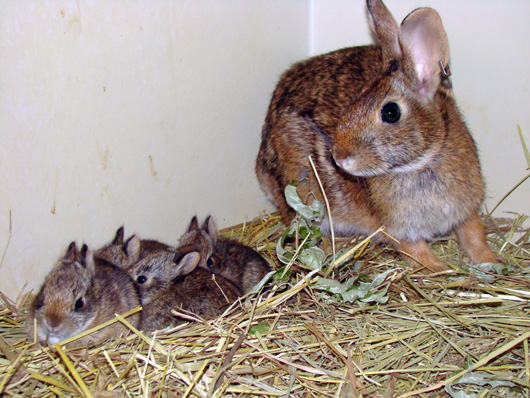
New England Cottontails Could Hop into Endangerment

Get the world’s most fascinating discoveries delivered straight to your inbox.
You are now subscribed
Your newsletter sign-up was successful
Want to add more newsletters?

Delivered Daily
Daily Newsletter
Sign up for the latest discoveries, groundbreaking research and fascinating breakthroughs that impact you and the wider world direct to your inbox.

Once a week
Life's Little Mysteries
Feed your curiosity with an exclusive mystery every week, solved with science and delivered direct to your inbox before it's seen anywhere else.

Once a week
How It Works
Sign up to our free science & technology newsletter for your weekly fix of fascinating articles, quick quizzes, amazing images, and more

Delivered daily
Space.com Newsletter
Breaking space news, the latest updates on rocket launches, skywatching events and more!

Once a month
Watch This Space
Sign up to our monthly entertainment newsletter to keep up with all our coverage of the latest sci-fi and space movies, tv shows, games and books.

Once a week
Night Sky This Week
Discover this week's must-see night sky events, moon phases, and stunning astrophotos. Sign up for our skywatching newsletter and explore the universe with us!
Join the club
Get full access to premium articles, exclusive features and a growing list of member rewards.
The New England cottontail rabbit is in trouble, and conservationists are trying to prevent it from becoming endangered.
Believe it or not, this once-common rabbit — the species that served as the inspiration for "The Adventures of Peter Cottontail" — is only found in five spots throughout New York and New England, according to a release from the U.S. Fish and Wildlife Service.
These rabbits thrive in young forests and shrublands, habitats that were widespread just a century ago. As farmlands and rural areas have returned to forests, and been turned into suburbs and urban areas, however, the cottontails have seen their historic range shrink by 86 percent since the 1960s, the release noted.
Conservationists, scientists and private landowners are working together to restore habitat to the species, according to the release. If the rabbit were listed under the Endangered Species Act, it would require an urgent costly response from the government that could restrict land use and hunting, the Associated Press reported.
The New England cottontail is the only rabbit native to the area east of the Hudson River. In the past century, however, it's been outcompeted by the Eastern cottontail, which was introduced for hunting. The Eastern cottontail is slightly larger and has larger eyes, allowing it to better avoid predators, according to the AP story. It can also thrive in a wider variety of habitats, from backyards to forests.
The Roger Williams Park Zoo in Rhode Island has been breeding the New England cottontail in captivity for several years, and has already released 38 young rabbits tagged with radio collars into restored habitats in Rhode Island and New Hampshire, according to the AP. The zoo expects to release 100 more rabbits later this year.
Email Douglas Main or follow him @Douglas_Main. Follow us @OAPlanet, Facebook or Google+. Original article on LiveScience's OurAmazingPlanet.
Get the world’s most fascinating discoveries delivered straight to your inbox.
 Live Science Plus
Live Science Plus











